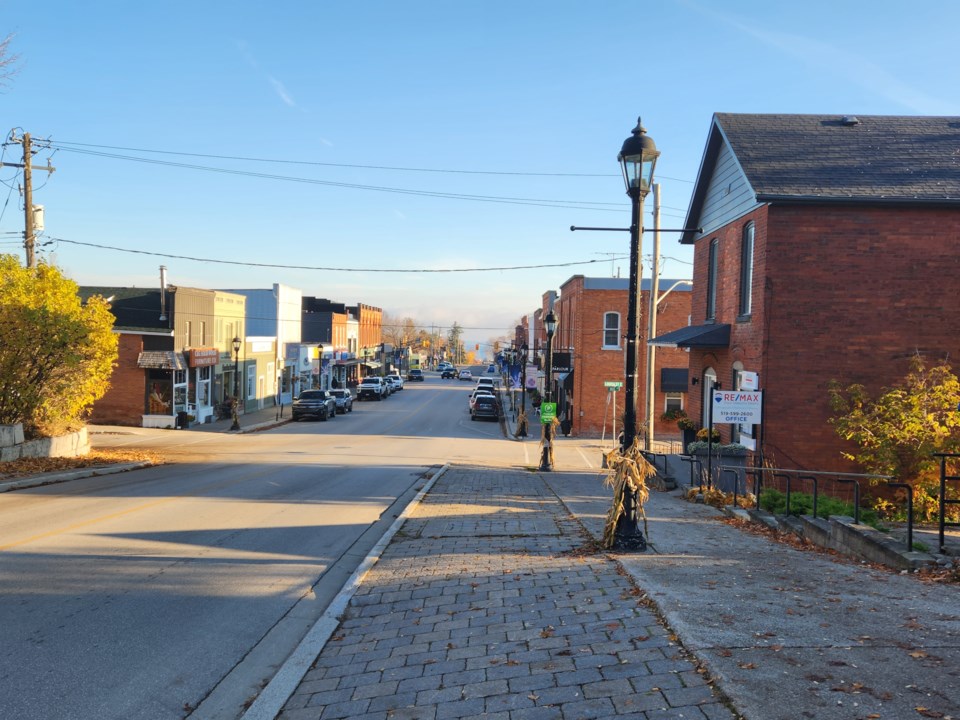The Town of The Blue Mountains is investigating whether or not to change how the Thornbury Business Improvement Association levy is divided up amongst its members.
At council’s committee of the whole meeting on Jan. 30, town clerk Corrina Giles brought forward a report about the possibility of changing the current funding formula for BIA. Currently, each business within the BIA boundaries pays the same amount. Council is considering a system that would use the assessed values of the properties in the designated BIA area to determine each member's share of the levy.
At the meeting, council passed a resolution accepting the clerk’s report and directing her to consult with the current BIA board of directors about the assessment-based funding system.
In the report, Giles said in Dec. 2019, the BIA board of directors asked council to consider switching to the assessment system for funding the organization. Not long after, the COVID-19 pandemic hit and the request was put on hold.
Giles said she would seek input from the new BIA board of directors about the possible change at the board’s upcoming meeting on Feb. 1. Her report explained there is a lengthy process to make changes to the BIA. Full details can be found here.
In 2022, the 123 members of the BIA each paid $852.85 to the organization for a total budget of $104,900. Giles explained to council that a change to the assessment system would not mean a financial windfall for the BIA. The board would continue to set the total annual budget for the organization and then collect its levy from the membership. The report noted that the assessment system would see a range of individual BIA levies from as low as $171.15 to as high as $13,788.58 with a median levy of $833.51. However, Giles also noted that council could set minimum and maximum amounts that could be charged in order to avoid massive disparities in the amount members were paying to the association.
Members of council supported the clerk’s department seeking more information, but were wary of the proposed change and said it had to have broad support from the members of the association before proceeding.
“It’s important whatever happens with the BIA levy is fully supported by the BIA community,” said Coun. Paula Hope.
Coun. Alex Maxwell said it was important to make sure future impacts of the change were known ahead of time.
“It’s imperative that the whole membership of the BIA understands what the long-term implications are,” said Maxwell. “We have to be very, very mindful that everybody has a picture of what this might be.”
Coun. Gail Ardiel said the assessment-based system for the BIA had been suggested in the past and had proven to be controversial.
“It did not go over well. I don’t think it’s the right way to go,” said Ardiel.
Giles said she would report back to council on Feb. 13 with the results of her consultations with the BIA board.



.jpg;w=120;h=80;mode=crop)